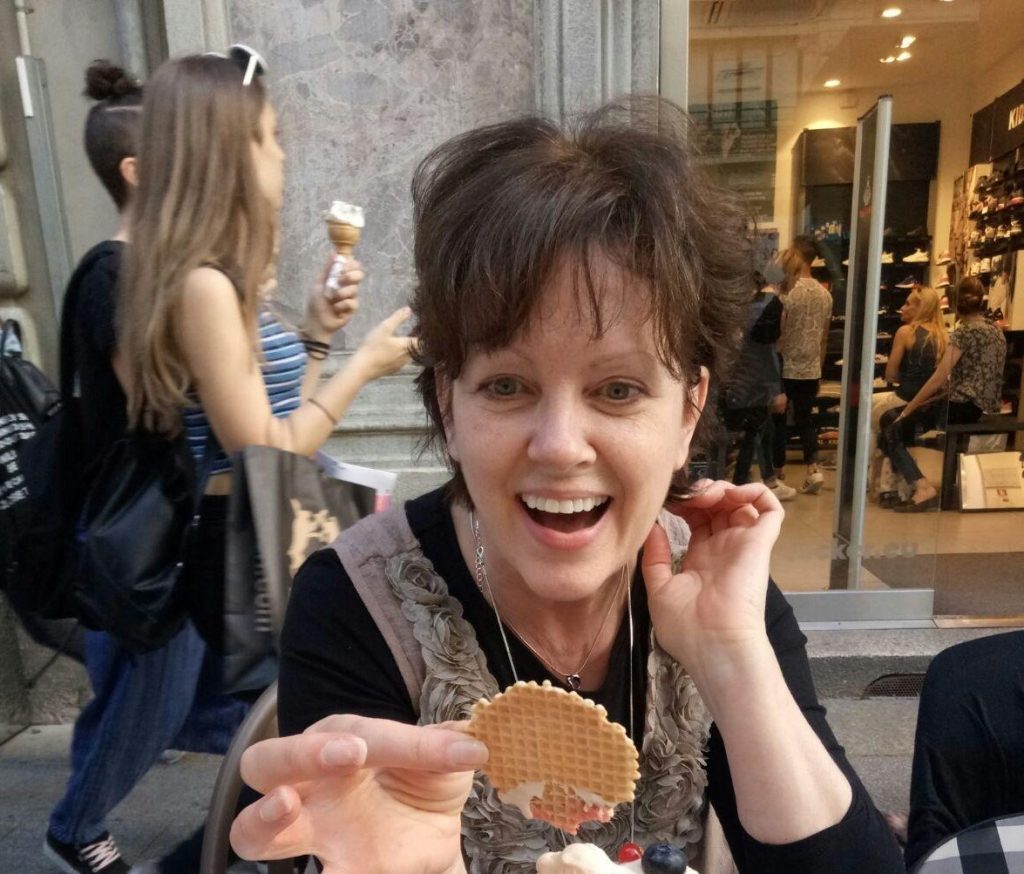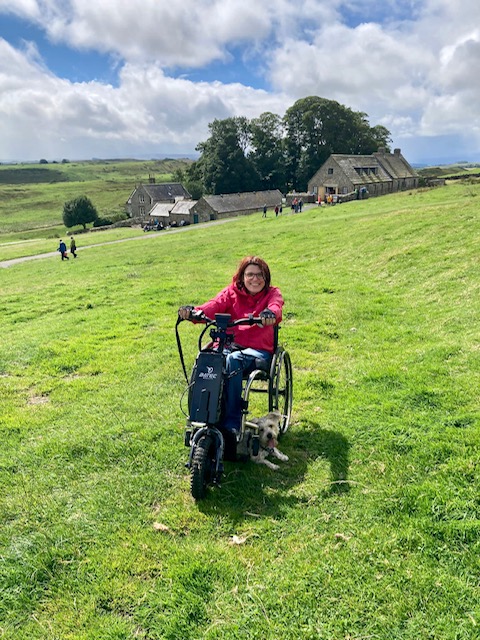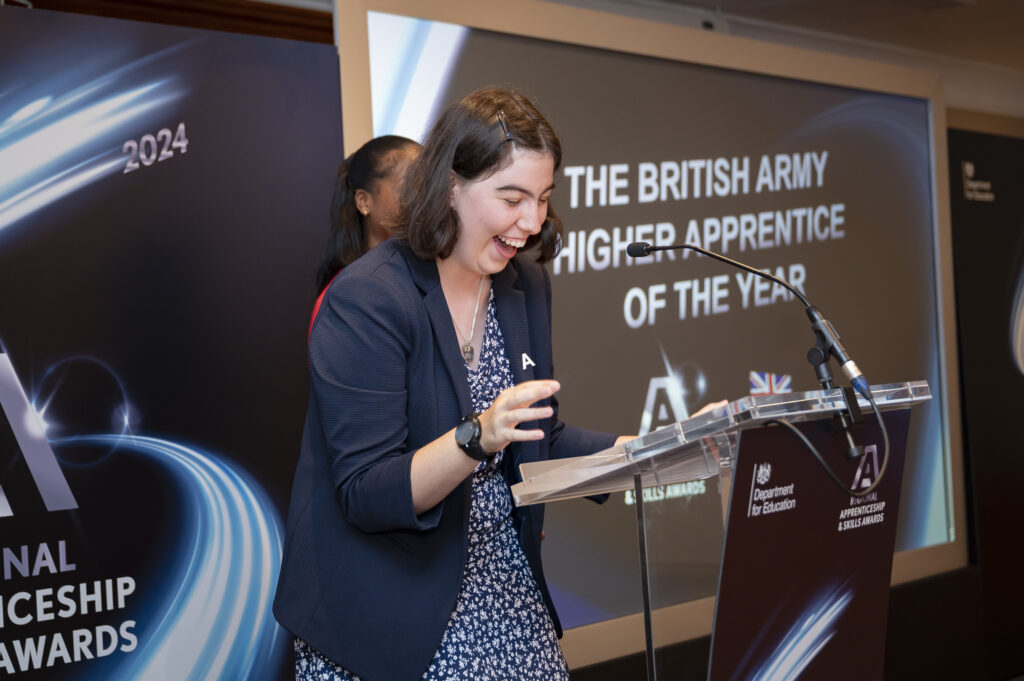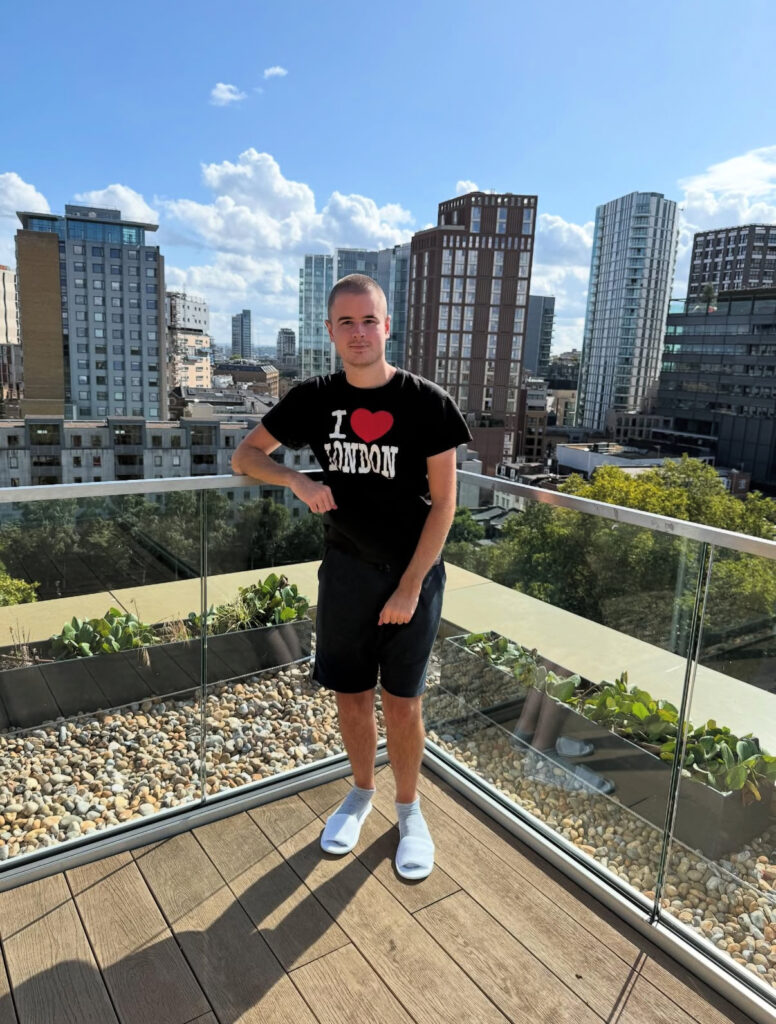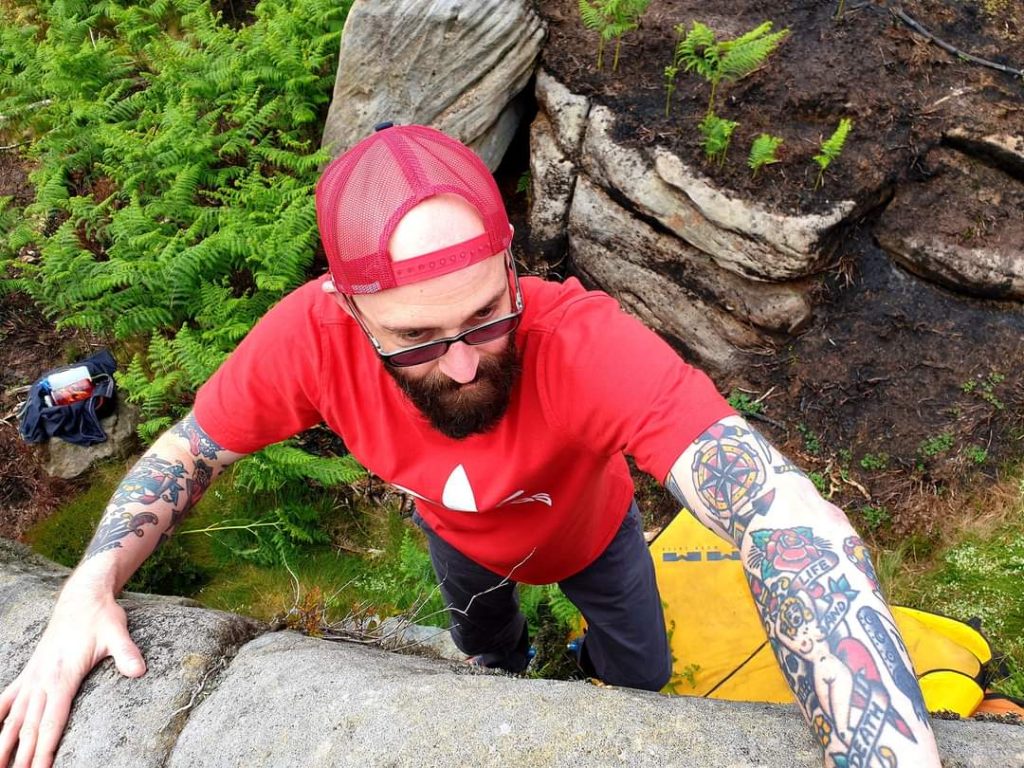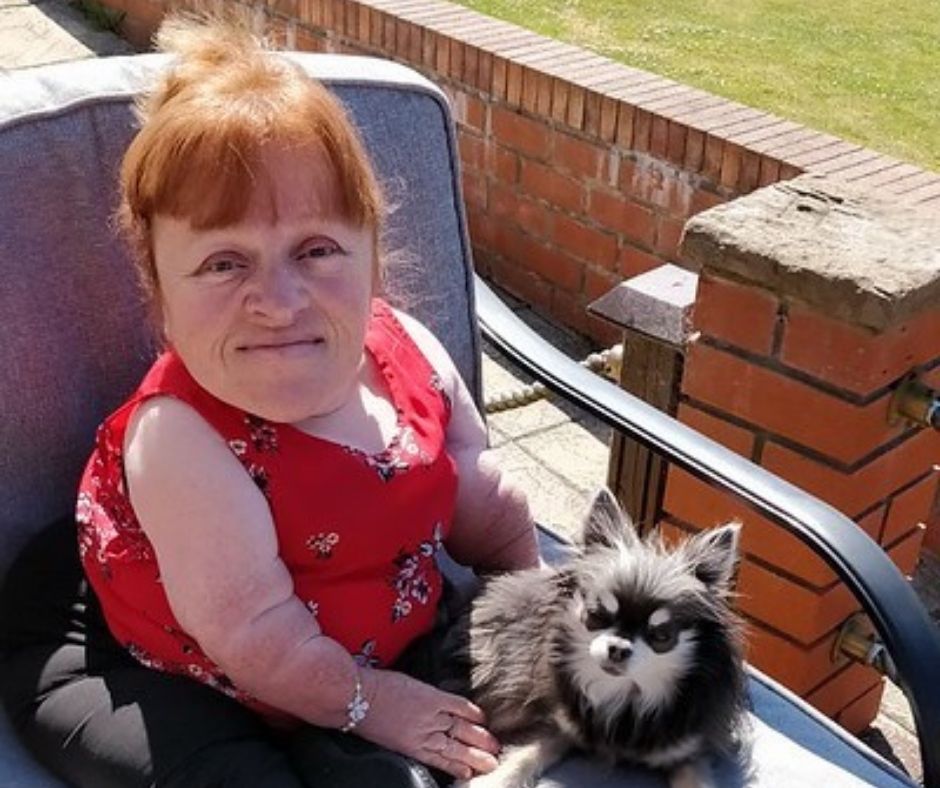My name is Laura Branigan. I am a retired dentist and was also a musical theatre actress. I am now a volunteer for Healthwatch, the eye clinic at the local hospital and acting as a patient for medical students at exam times. It keeps me busy and ‘off the streets’!
I was diagnosed in 1996 with a hereditary, rare, progressive neurological condition called Hereditary Spastic Paraparesis (HSP). This means using a mobility scooter outside and indoors I use a powerchair as I am not able to walk.
I gave up dentistry for a while to become a musical theatre actress. I attended GSA (Guildford School of Acting) and pursued this for some years before returning to dentistry and making a more steady living. I was a dentist for over 30 years and took early retirement in 2013 – I was having to reduce hours because of fatigue and my boss gave me 6 months’ notice to leave. Harsh I thought initially, but it was understandable…he was a business man, after all.
As a musical theatre performer it’s easy to become obsessed with your appearance, gait and others’ perceptions of you. My unknown future meant that I decided to leave showbiz shortly after my diagnosis. Theatre-land at the time would have been so cruel to one not conforming to an accepted appearance. I returned to dentistry and it was years before I needed to buy a ‘special’ dental stool and adapt the way I worked as my condition progressed.
I found that disability during my years of working was really difficult for me, and certainly for others to deal with. I eventually needed to get written confirmation from my GP and various people at the hospital to state that I was safe to treat patients. It turned out that ‘dental-land’ was also pretty cruel to a practitioner becoming disabled – I had very little advice/support during this time and even less as I embarked on retirement.
My first realisation that I was perceived very differently was when I started to volunteer for Healthwatch. I was surveying patients in A&E at the local hospital and was sitting at a lower level in my scooter. Witnessing a conversation between two nurses that was taking place above my head, I felt completely excluded and invisible. It was obvious to me that I was no longer in charge and respected by staff members as I had been for the previous 30 years. It was like a thunderbolt! I realised I needed to get some confidence back.
It took about 6 months after retirement for me to accept that I was no longer ‘needed’ in my profession. From thereon it was onwards and upwards… there was no way I’d be thrown on the scrap heap!
The characteristics of my previous job – my need to make a difference and care for others – had obviously become ingrained. I have made changes in the small city I live in – largely, in the shops and at the local hospital. My passion for change chiefly revolves around toilets. I often report to the management about the lack of a mirror, a hand dryer and the tying up of red emergency cords in the ‘disabled’ toilet. I state, if relevant, that mirrors are not only for applying lipstick – if I go on to mention mirrors can be to check if certain medical appliances show, it often leads to one being fitted pretty quickly. Another bugbear of mine in the hospital is all the accessible toilets having pedal-powered bins which I and many disabled people cannot use. I am that annoying middle-aged woman asking for change!
Before the 1st Covid lockdown I went on a solo holiday on my scooter to Barcelona. I had a fantastic time and now want to make this an annual event. The overriding feeling was one of freedom and the reduction of judgemental stares and pitying looks. In Europe a physical disability seems to be accepted as ‘one of those unfortunate things that sometimes happen, let’s just get on with it’. I’ve found that positive attitude largely in Germany and Spain. This attitude spills out onto public transport, especially, and most other aspects of daily life. Inclusion in restaurants seems to be of great importance. A ‘can-do, no problem’ attitude is refreshingly common. It was definitely the same in the hotel where I stayed and the shops I visited.
During the 18 months of lockdown I realised early on that most people would be in the same boat ie. not being able to access the great outdoors to a large extent. I found this quite comforting – which I can say, surely, because for most this is (hopefully) temporary!
I feel quite hopeful about the changing perception of disabled people in the UK because my experiences in Europe have been so positive and, despite our exit from the EU, it’s still not too far away, is it?
Vive la vida!
